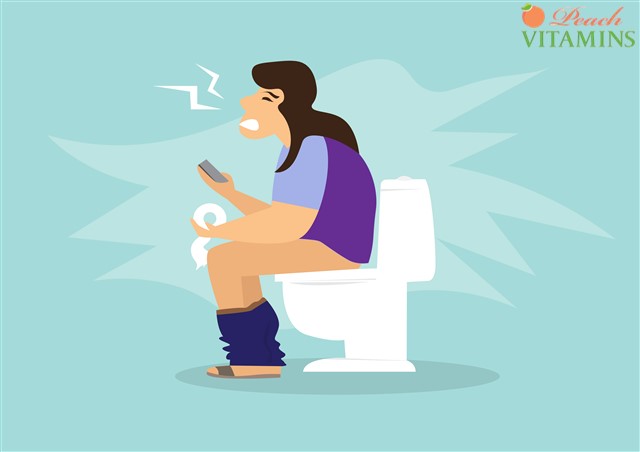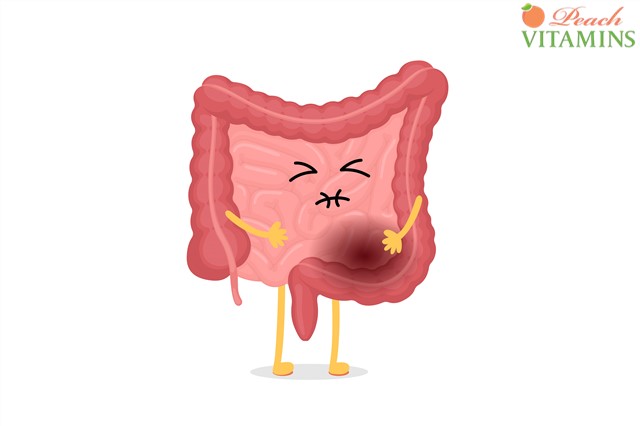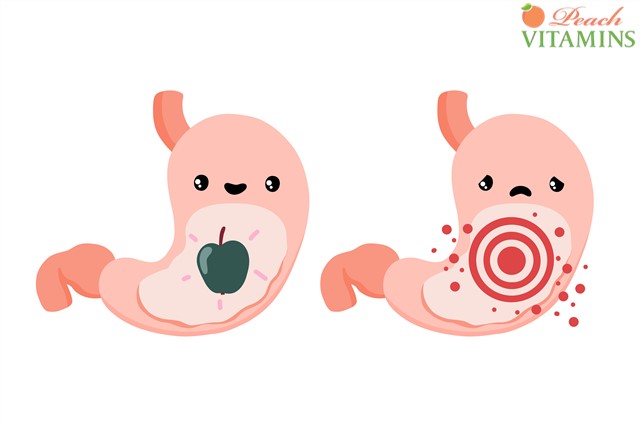We’ve all heard of constipation, but do we understand how it works? In this article, I’ll explain why constipation happens, how it affects our bodies, and how we can prevent it from happening again.
Constipation is a common problem that most of us experience at least once every year, and it’s not fun, but fortunately, many natural remedies work well against constipation. This will help you learn how to treat constipation naturally without relying on drugs or surgery.
About 14% of people experience chronic constipation at some point (1Trusted
Source: healthline.com

How To Stimulate Bowel Movement Immediately
Stimulating bowel movement immediately after eating can be helpful in cases of constipation. Food passing through the digestive system can build up and lead to uncomfortable symptoms like bloating, gas, cramps, and diarrhea.
To stimulate bowel movements immediately after meals, try drinking plenty of water while eating. Also, eat smaller meals more frequently throughout the day instead of having large meals every few hours. Eating fiber-rich foods, like fruits and vegetables, can also help prevent constipation.
It’s also important to avoid caffeine and alcohol, which can interfere with normal digestion. Avoiding these substances can help you feel less bloated and experience faster bowel movements.
Does Protein Make You Constipated?
Protein is essential to a healthy diet but can sometimes lead to constipation. Many people assume that protein causes constipation, but it turns out that it’s just the opposite. Plenty of fiber keeps your digestive system moving smoothly, while protein promotes bowel movements.
To avoid constipation, eat plenty of fiber-rich foods, including whole grains, fruits, vegetables, nuts, seeds, beans, lentils, and oats. Fiber helps food pass through your body faster, keeping you feeling full longer. Also, try drinking plenty of water daily to prevent dehydration, which can contribute to constipation.
It’s important to remember that eating protein does not necessarily mean you’ll experience constipation. Some people who follow a low-carb diet report experiencing constipation after consuming large amounts of meat. So if you’re worried about constipation, talk to your doctor about other options.

Does Constipation Cause Bloating?
Constipation causes bloating because it prevents the body from absorbing nutrients properly. When food passes through the digestive system without being digested completely, it creates gas and other unpleasant side effects.
To prevent constipation, eat fiber-rich foods, including whole grains, fruits, vegetables, nuts, seeds, beans, lentils, and tofu. These foods contain soluble fibers that bind water and create bulk in the intestines. Fiber also helps soften stool and decrease the time it takes to pass through the colon.
A poor diet may also cause bloating. If you have an underactive thyroid gland, you may be constantly hungry, even though you’ve eaten enough. Your body needs adequate levels of iodine for proper functioning, so take a supplement if you suspect this could be the case.
If you suffer from frequent constipation, speak to your doctor about possible underlying medical conditions such as irritable bowel syndrome.
Other ways to relieve constipation include taking magnesium supplements, exercising regularly, and avoiding fatty foods. Magnesium helps to relax muscles in the gut, allowing the bowels to move more freely. Exercise increases blood flow to the intestinal tract, helping to flush toxins and bacteria out of the body. Finally, limiting fat intake reduces the risk of cholesterol deposits in the intestine, which can block the passage of waste material.
Can Being Constipated Make You Sick?
It is very common for people suffering from constipation to experience stomach aches, nausea, vomiting, diarrhea, headaches, body pains, etc. This means that constipation may cause serious health problems.
The most important thing is to treat constipation as soon as possible because it can lead to more severe conditions such as hemorrhoids, anal fissures, ulcers, intestinal blockages, colon cancer, rectal prolapse, diverticulitis, and even death.
In addition, constipation can also affect your social life and family life. For example, it can prevent children from going to school, making them miss out on education, and Constipation can even result in absenteeism among adults.

Should I Take Fiber When I’m Constipated?
Fiber supplements contain soluble fibers that bind water and create bulk in the stool. Soluble fibers are found in foods like fruits, vegetables, beans, nuts, seeds, whole grains, and dairy products. These fibers are helpful because they add volume to stools and prevent them from becoming dry and hard.
Unfortunately, fiber supplements can sometimes cause diarrhea instead of helping to cure constipation. This happens because the fiber binds with other substances in the digestive system, causing them to pass through the body faster. Some people who suffer from chronic constipation report having diarrhea after taking fiber supplements.
Because of this issue, doctors recommend against taking fiber supplements unless you experience severe symptoms. Instead, try drinking plenty of fluids and eating more fiber-rich foods. Try adding flaxseeds to smoothies, oatmeal, salads, or yogurt. Also, eat more bananas, apples, oranges, carrots, broccoli, cauliflower, peas, and beans.
What Foods Make Constipation Worse?
Millions of Americans suffer from constipation every year. If you suffer from constipation, there are plenty of foods that may make it worse. Here are six foods that cause constipation and how to avoid them.
1. Sugar
Sugar worsens constipation because it slows digestion and increases transit time, so food moves more slowly through your digestive system, leading to increased stool volume. Constipation with sugar can be so bad that some people have trouble passing gas.
2. Milk Products
Milk products contain lactose, which is broken down during digestion. Lactose intolerance occurs when the body cannot break down lactose properly. When lactose passes undigested, it can increase the number of watery stools produced.
3. Wheat
Wheat contains gluten, which can cause bloating and abdominal discomfort. Gluten sensitivity also contributes to constipation.
4. Fruits
Fruit juices contain pectin, a fiber found in fruits such as apples, oranges, grapes, peaches, and berries. Pectin helps soften stools by increasing bulk and decreasing frequency. However, fruit juices do not provide much dietary fiber.
5. Processed Meats
Processed meats contain nitrates, which have been linked to colon cancer. Nitrate levels in processed meat are higher than those in fresh meat.
6. Alcohol
Alcohol causes dehydration, which can slow digestion and contribute to constipation. It also reduces fluid intake, which leads to slower bowel movements.
Long-term constipation can lead to serious health problems, including hemorrhoids, anal fissures, diverticulosis, and even rectal prolapse. Although these conditions are painful, they are usually treatable. In most cases, treatment involves lifestyle changes and medication.
If you’re suffering from long-term constipation, talk to your doctor about what you can do to improve your situation. They may suggest medications, natural remedies, or other treatments.

Natural Remedies for Constipation
- Apple Cider Vinegar – Apple cider vinegar has many benefits for the digestive tract and it promotes healthy digestion, improves intestinal flora, and relieves stomach cramps. Drink one tablespoon daily.
- Baking Soda – Baking soda neutralizes acidity in the stomach and intestines. Use two teaspoons per day.
- Chamomile Tea – Chamomile tea is soothing and relaxing. Add one teaspoon to boiling water and let steep for 5 minutes. Sip throughout the day.
- Cranberry Juice – Cranberries are high in antioxidants, which help fight free radicals in the body, promote urinary flow, and relieve bladder infections. Drink 3 cups daily.
Healthy bowel habits begin with a proper diet. Avoiding certain foods will prevent constipation and keep you feeling full longer.
What Fruit Has the Most Fiber?
There are lots of ways to answer this question. But here is my favorite way to do it.
It seems evident that apples would be a great source of fiber because they contain pectin, which is an insoluble form of dietary fiber. However, other fruits also contain pectin. Examples include bananas, oranges, strawberries, cherries, blueberries, raspberries, blackberries, grapes, mangoes, watermelon, papaya, peaches, plums, apricots, melons, figs, dates, prunes, and persimmons.
The next step is to determine how much of each fruit contains pectin. This is where we need to look for more information. Pectin is found in most fruits except citrus fruits such as grapefruit and orange.
Pectin is soluble in hot water and forms a gel when mixed with cold water. So, we could test our hypothesis by boiling the fruits and seeing if they become firm after cooling. If they did, then we know that they contained pectin.
Now let’s go back to our list of fruits. We’ll add them to a bowl and mix them. Then we’ll pour the mixture into two separate containers. One container will cool quickly while the other container will remain warm. After 30 minutes, we’ll check the contents of both containers. If the fruit remained solid in the warmer container, then we know that the fruit had the highest amount of pectin.
This experiment shows us that the banana has the most pectin. Apples come second, followed by oranges, strawberries, and cherries. Grapes, watermelons, and papayas came last.
Is Oatmeal Good for Constipation?
If you’re constipated, oatmeal may help. But there are better ways to treat constipation than eating oats.
Oats contain soluble fiber, which helps move food through your digestive tract more quickly. In addition, oats also contain insoluble fiber, which adds bulk to the stool, helping keep things moving.
But if you suffer from chronic diarrhea, drinking milk instead of eating oatmeal could make matters worse. Milk contains lactose, an enzyme that breaks down the carbohydrates in oatmeal, making it easier for your body to absorb them.
Instead, drink water when you eat oatmeal. Water helps flush out toxins and waste products from your system. Drinking plenty of fluids can also prevent dehydration which can lead to constipation.
Overall, the analysis suggested that probiotics improved constipation by 10–40% compared with a placebo.
Source: medicalnewstoday.com

Should You Eat When Constipated?
The problem is that when we eat when constipated, our stomach acids rise and cause us to burp, making us vomit. Vomiting is a natural response to acid reflux. But vomiting also increases the amount of acid in your stomach, which means more acid reflux—so eating when constipated may increase your chances of developing ulcers.
But here’s the good news. Eating when constipated doesn’t mean you have to live with acid reflux; there are ways to avoid both problems.
First, you can eat smaller meals more frequently. For example, try eating two small meals instead of three large meals daily. Or, if you prefer, skip breakfast altogether.
Second, you can eat foods that neutralize your stomach acid. These include milk products, yogurt, beans, lentils, and cabbage. Other foods that help reduce acidity include citrus fruits, onions, garlic, ginger, and peppermint.
Third, you can drink lots of water. A healthy body naturally produces alkaline fluids such as bile and urine, and drinking plenty of these helps keep your stomach acid levels low.
Fourth, you can take antacids. Antacids contain chemicals that bind with stomach acid and prevent its release into the esophagus.
Finally, you can take natural laxatives. Natural laxatives like psyllium seeds or aloe vera juice work by absorbing excess fluid in the colon. They don’t stimulate the muscles in the intestines as some prescription drugs do; instead, they pull extra liquid out of the bowel.
Regular bowel movements are important because they help remove harmful bacteria from your colon. A balanced diet is the best way to ensure regular bowel movements and includes plenty of vegetables, whole grains, and lean protein.
Wrapping Up
In conclusion, if you learn more about what’s good for constipation, you’ll be able to choose healthier options. And this will help you feel better and look better too!
Schedule a free consultation with Ayurvedic practitioner Cosmic Mike to learn more about beneficial bacteria and the wide variety of health benefits they offer for complete constipation relief.
